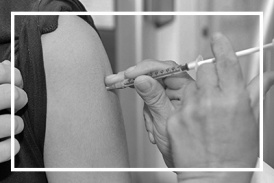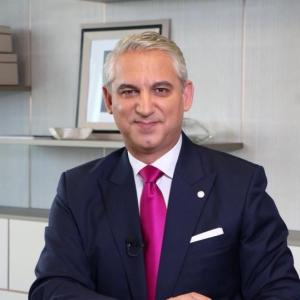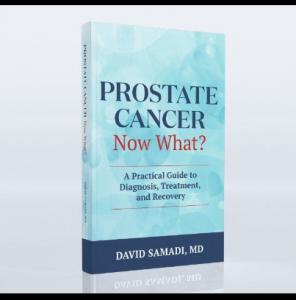Dr. David Samadi: Strong Dads, Stronger Families — Why Men's Health Matters More Than Ever This Father's Day

Healthy dads, happy families. When fathers lead by example, they inspire the next generation to live stronger, healthier lives—starting with moments like this.
NYC urologist and prostate cancer surgeon, Dr. David Samadi underscores how a father’s commitment to his own health can inspire lasting wellness in his children
"Being a father is about more than love and support — it's also about leadership," says Dr. Samadi, Director of Men's Health and Oncology at St. Francis Hospital in Roslyn, New York, and author of Prostate Cancer, Now What? A Practical Guide to Diagnosis, Treatment, and Recovery, and The Ultimate MANual, Dr. Samadi’s Guide to Men’s Health and Wellness. Dr. Samadi also has a medical practice in the Dominican Republic in which he is the Director of the Samadi-HOMS Robotic Oncology Institute. "When dads model healthy habits, their children are far more likely to follow. Health isn't just personal — it's generational."
The Power of Example
June marks Men's Health Month and Father's Day, making it the perfect time to spotlight fathers' unique role in shaping their family's well-being. Kids are always watching — and when a dad chooses to eat well, stay active, and schedule regular checkups, he's not just taking care of himself, he's sending a powerful message: A devoted father understands that his health and well-being are worth protecting—not just for himself, but to ensure a strong and healthy future for his family.
"Too often, men avoid going to the doctor unless something feels seriously wrong," says Dr. Samadi. "But many health problems, including prostate cancer, can be caught early and treated effectively — if we don't wait too long. Preventive care isn't a weakness. It's wisdom."
The Health Habits Kids Pick Up from Dad
Children are more likely to mirror their father's lifestyle choices than we realize. If a dad smokes, skips exercise, or drinks heavily to cope with stress, those behaviors may seem normal to his kids. On the other hand, if he makes a point to stay active, eat vegetables, and take his health seriously, that sets a lasting foundation for healthier children.
"I encourage men to invite their kids to join them on a walk or in the kitchen when preparing dinner," suggests Dr. Samadi. "These small, shared moments build healthy routines and positive memories."
Fatherhood and Medical Checkups: Breaking the Cycle
Many men grew up in households where doctor visits were rare unless there was an emergency. One reason men neglect their health is that life gets busy. There are bills to pay, food to put on the table, and not enough time to think about themselves. Therefore, men tend to view going to the doctor as a waste of time, especially for regular screenings - who wants to sit in a waiting room thumbing through old magazines or watching HGTV?
But, men should remember that no matter their age, none of us is invincible. No one should take their youth or health for granted. While serious medical conditions can strike unexpectedly at any age, there's a greater chance of beating them back when caught early. That pattern of ignoring men ignoring their health needs to change, and fathers play a crucial role in breaking it. By prioritizing their health and regular checkups, they can set a new, healthier standard for their children to follow.
"Even young dads in their 20s and 30s should be thinking about blood pressure, cholesterol, and testicular cancer awareness," says Dr. Samadi. "By their 40s, it's time to monitor blood sugar, triglycerides, and family history of prostate cancer or heart disease."
Once men hit age 45 — or earlier if they're at higher risk — screening for colorectal and prostate cancer becomes especially important. Prostate cancer is the second most common cancer in American men and the second leading cause of cancer death, behind only lung cancer, according to the American Cancer Society. Since 2014, the incidence rate has increased by 3% per year. In 2025, it is estimated that about 313,780 new cases of prostate cancer will be diagnosed and about 35,770 men will succomb to this disease.
"I recommend every man have a baseline PSA test starting at age 40," Dr. Samadi says. "It's a simple blood test, but it can be life-saving. Every man should talk to their doctor about it — and to know their numbers too."
Building a Healthier Legacy
Busy schedules, stress, and responsibilities often push men's health to the back burner. But Dr. Samadi insists that carving out time for preventive care, movement, and nutritious meals pays off — not just in longevity, but in the quality of family life.
"Being healthy helps men show up for their family — not just physically, but mentally and emotionally too," he explains. "Men who embrace good health habits are not just living longer — they are living better. And their kids see that."
A Final Word from Dr. Samadi
"This Father's Day, I encourage every man to take a moment and ask: Am I setting the kind of health example I'd want my child to follow?" says Dr. Samadi. "It's not about perfection — it's about progress and consistency. Because when dads take charge of their health, they're helping build stronger, healthier families for generations to come."
Dr. David Samadi is the Director of Men’s Health and Urologic Oncology at St. Francis Hospital in Long Island. He’s a renowned and highly successful board certified Urologic Oncologist Expert and Robotic Surgeon in New York City, regarded as one of the leading prostate surgeons in the U.S., with a vast expertise in prostate cancer treatment and Robotic-Assisted Laparoscopic Prostatectomy. Dr. Samadi is a medical contributor to NewsMax TV and is also the author of two books, Prostate Cancer, Now What? A Practical Guide to Diagnosis, Treatment, and Recovery, and The Ultimate MANual, Dr. Samadi’s Guide to Men’s Health and Wellness, available online both on Amazon and Barnes & Noble. Visit Dr. Samadi’s websites at robotic oncolo gy and prostate cancer 911.
David Samadi
Madison Urology
+1 212-365-5000
email us here
Visit us on social media:
LinkedIn
Instagram
Facebook
YouTube
X
Legal Disclaimer:
EIN Presswire provides this news content "as is" without warranty of any kind. We do not accept any responsibility or liability for the accuracy, content, images, videos, licenses, completeness, legality, or reliability of the information contained in this article. If you have any complaints or copyright issues related to this article, kindly contact the author above.
3D Laser Scanners Market to Witness Huge Growth From 2025 - 2034
Ginagawa ng IUX na Mas Madali ang Pagkatuto tungkol sa Trading sa pamamagitan ng mga Libreng Resource sa YouTube
Call My Doctor Introduces Specialized At-Home Physiotherapy Services Across Dubai
Kalendarium
Więcej ważnych informacji
 Jedynka Newserii
Jedynka Newserii

 Jedynka Newserii
Jedynka Newserii

Farmacja

Zagrożenie krztuścem pozostaje najwyższe od ponad trzech dekad. Odporność utrzymuje się do 10 lat po szczepieniu
W ubiegłym roku na krztusiec zachorowało ponad 32 tys. osób. To ok. 35 razy więcej niż rok wcześniej. Ostatnie tygodnie przynoszą wyhamowanie tendencji wzrostowej, ale Główny Inspektor Sanitarny przestrzega przed tą groźną chorobą i wskazuje na konieczność szczepień u dzieci już w okresie niemowlęcym i szczepień przypominających u dorosłych. Dużą rolę w promowaniu tej jedynej formy profilaktyki odgrywają pielęgniarki, które nie tylko informują o korzyściach ze szczepień, ale też mogą do nich kwalifikować.
Bankowość
Zdaniem 80 proc. Polaków ceny nieruchomości są wysokie lub bardzo wysokie. Mimo to i tak wolimy posiadać na własność, niż wynajmować

Tylko 26 proc. Polaków uważa, że mamy obecnie dobry moment na zakup nieruchomości. Dla ośmiu na 10 ankietowanych ceny nieruchomości są obecnie wysokie lub bardzo wysokie. 65 proc. ocenia też, że niewiele osób z ich otoczenia może sobie teraz pozwolić na zakup mieszkania lub domu – wynika z badania „To my. Polacy o nieruchomościach” portalu ogłoszeniowego Nieruchomosci-online.pl.
Transport
Nowe opłaty za emisję CO2 mogą spowodować wzrost kosztów wielu małych i średnich firm. Eksperci apelują o mądre instrumenty wsparcia [DEPESZA]

System ETS2, który zacznie obowiązywać od 2027 roku, nałoży podatek na paliwa kopalne wykorzystywane do ogrzewania budynków czy w transporcie. Koszty w dużej mierze poniosą dostawcy, w tym małe i średnie firmy. – Potencjalny wpływ systemu ETS2 na sektor MŚP w Polsce będzie znacznie mniej drastyczny, niż mogłoby się wydawać. Konieczne jest jednak przygotowanie odpowiednich instrumentów, które wesprą przedsiębiorców w przemianie w kierunku niskoemisyjnym, ale jednocześnie będą unikały podwójnej kompensacji – wskazuje raport WiseEuropa pt. „Wędka czy ryba? Wsparcie dla polskich MŚP w związku z wprowadzeniem ETS2”.
Partner serwisu
Szkolenia

Akademia Newserii
Akademia Newserii to projekt, w ramach którego najlepsi polscy dziennikarze biznesowi, giełdowi oraz lifestylowi, a także szkoleniowcy z wieloletnim doświadczeniem dzielą się swoją wiedzą nt. pracy z mediami.




![Nowe opłaty za emisję CO2 mogą spowodować wzrost kosztów wielu małych i średnich firm. Eksperci apelują o mądre instrumenty wsparcia [DEPESZA]](https://www.newseria.pl/files/1097841585/664-ciezarowki-postoj-foto2,w_85,_small.jpg)





.gif)

 |
| |
| |
|